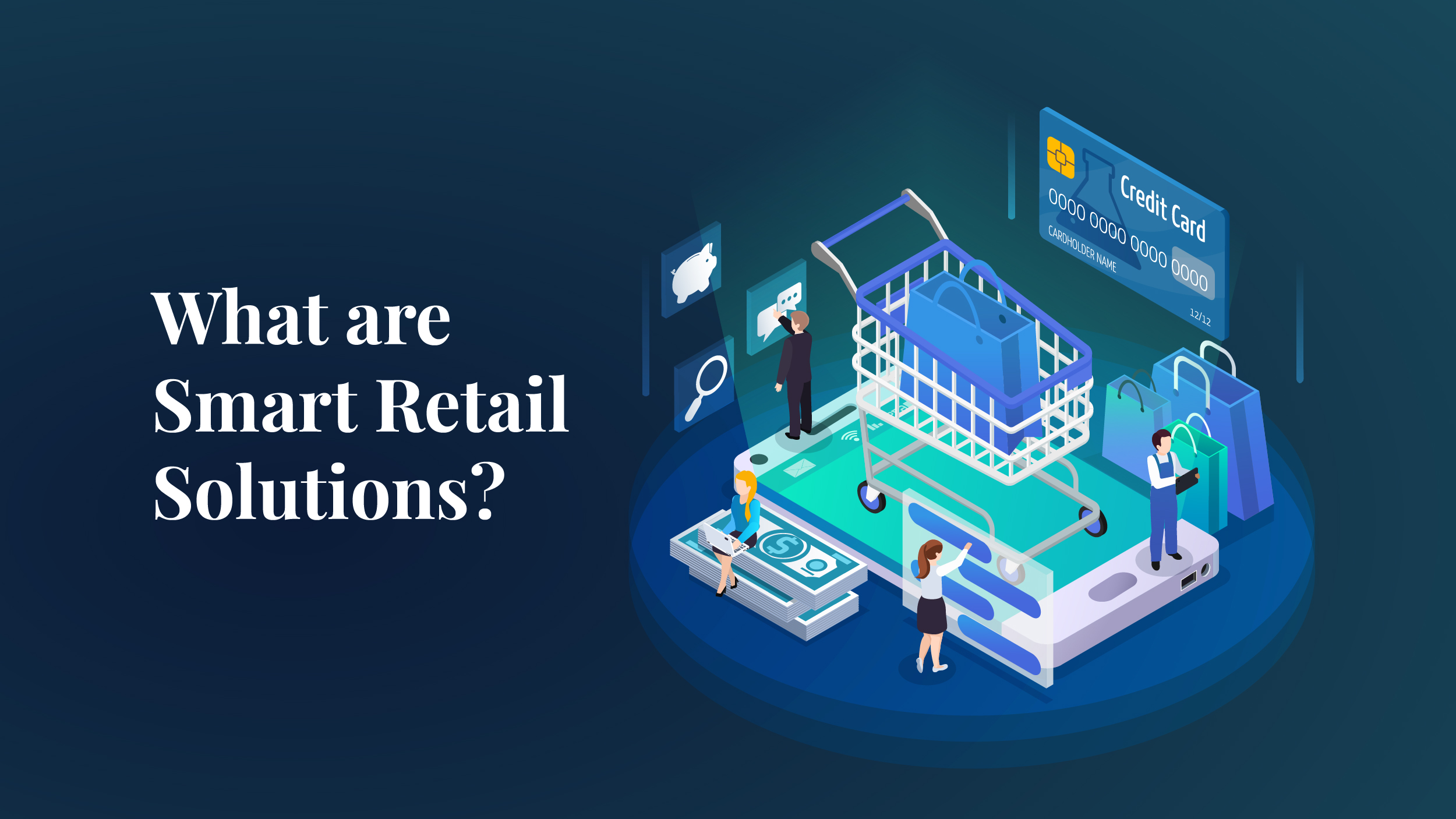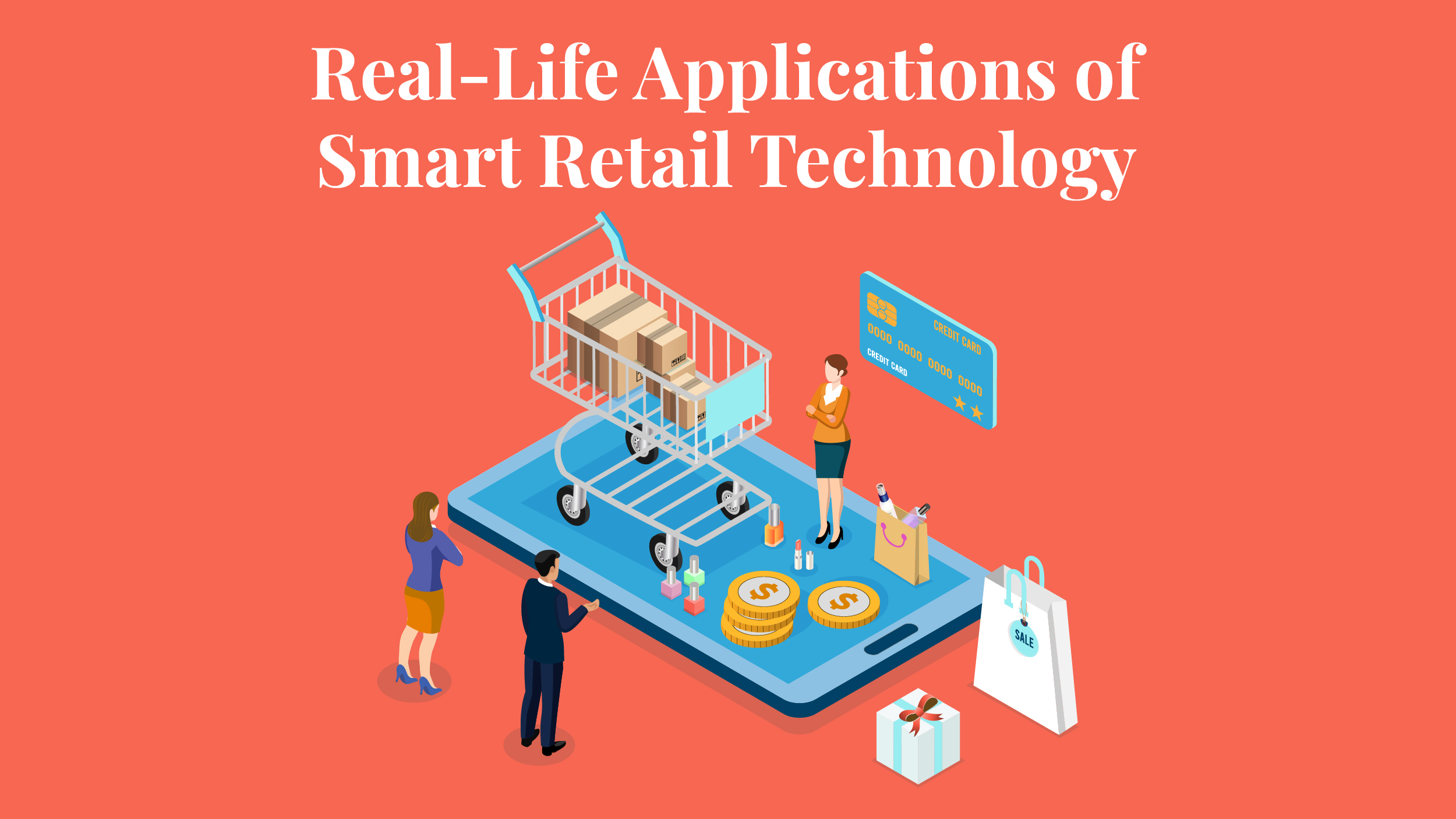In today’s world, online shopping has become an integral part of our lives. Many traditional brick-and-mortar stores are recognizing the need for digital transformation to meet customer expectations, retain loyalty, and portray a modern brand image. As businesses transition to digital channels, developing effective strategies becomes crucial for maintaining customer relationships and delivering a distinctive digital experience.
Smart retail is a strategy that enables brands to track customer feedback, make adjustments, and maintain consumer interest. It ensures a satisfying shopping experience by offering the best products and prices. As physical stores decline and modern technologies advance, smart retail could become the future of the retail industry, addressing consumer preferences and adapting to evolving trends.
What is Smart Retail?

Smart retail utilizes cutting-edge technologies such as the Internet of Things (IoT), artificial intelligence (AI), and cloud computing to enhance the overall shopping experience for customers and streamline retail operations. This approach combines digital technology with traditional shopping practices, bringing about a revolution in the retail industry. The adoption of smart retail solutions yields various advantages, including enhanced customer experiences, streamlined processes, and valuable insights into consumer behavior.
By harnessing the power of technologies like AI and IoT, retailers can optimize their operations, personalize customer experiences, and gain a competitive advantage in the digital era. These advanced tools enable retailers to track customer feedback, make positive adjustments, and offer improved products and prices. With the potential to transform the future of retail, the smart store ensures that customers enjoy personalized experiences, fostering a sense of satisfaction that encourages them to return to the shop in the future.
Why Smartify the Retail Sector?
For the last decade, the retail industry has been in change. E-commerce, social media, worldwide pandemics, and smart devices have all had a significant impact on the retail sector. One thing is certain: shops must adapt or risk becoming obsolete.
Brands like Barnes & Noble, Barneys, and Toys R Us faced challenges leading to their decline, primarily due to insufficient understanding of consumer behavior, ineffective communication and targeting, prolonged checkout processes, and high operational costs. Their failure to embrace technology played a significant role in the decline, contributing to a decline in sales.
A traditional brick-and-mortar store fails to successfully target the retailer business’s pain points: adopt a single-dimensional business strategy, fail to segment and target the masses, compete solely on pricing and quality, store layouts, and visual merchandising.
What are Smart Retail Solutions?
Here are a few new revolutionary retail solutions and technologies that will have a big impact on the retail industry in the future.
iBeacons
These devices generate a Bluetooth signal that may be used to track consumer activity and increase sales by sending push notifications and customized alerts about new products and special offers from the store’s app directly to customers’ smartphones based on their location within the store. This technology is low-cost and may be integrated into any existing retail establishment without requiring extensive alterations.
Loyalty Apps
Loyalty programs, according to Hubspot, enhance the odds of selling to an existing consumer by up to 70%. Retailers may utilize loyalty apps to increase customer retention and lifetime value by providing targeted promotions and discounts based on previous purchase history or interactions with sophisticated POS systems — all through automated marketing and analytics.
Front Office Chatbots
Retailers may now use intelligent chatbots to automate certain activities like customer support. Retailers may improve the speed and accuracy of their responses by deploying front-office chatbots, which increases customer happiness. Chatbots also help businesses personalize consumer interactions by learning about them over time, allowing them to respond to inquiries and resolve frequent concerns more quickly.
Grab-and-Go Systems
Customers can purchase things without having to deal with a cashier using grab-and-go technology. Retailers can use this solution to improve consumer purchases and decrease in-store time while also enhancing transaction accuracy. One of the best instances of this technology in action is Amazon GO.
Smart Tags
A smart label provides detailed information about items on store shelves, ensuring authenticity and supply-chain integrity while also allowing businesses to interact with customers in novel ways. A smart label can also provide information about the product’s origin and manufacturing process, confirming that it is genuine. This improves brand transparency, which builds customer trust.
Real-Life Applications of Smart Retail Technology

Smart retail technology has brought positive transformations to various aspects of the retail sector. Below are some retail examples of implemented or upcoming applications:
➔ AI-Powered Personalized Experiences
Retail giant Amazon utilizes artificial intelligence (AI) in its recommendation engine. This AI analyzes consumer behavior, considering factors like purchase history, path, social media activity, and product lifespan. By understanding consumer preferences, AI generates personalized product recommendations, enhancing the likelihood of consumer engagement.
➔ Mobile Applications for Enhanced Customer Engagement
In a society heavily reliant on smartphones, mobile applications play a crucial role in boosting customer retention and loyalty. These applications support sales by enabling virtual product presentations and services. Additionally, they help strengthen the relationship between customers and brands, allowing for personalized offers. Providing both customers and store employees with new sales and service tools through mobile apps enhances the overall consumer experience and increases shopping satisfaction.
These examples illustrate how the integration of smart retail technology can significantly improve the customer experience and contribute to the success of retail businesses.
Concluding Thoughts
The ongoing digital transformation across industries signals the current era’s evolution. Anticipated changes in future stores are poised to revolutionize how consumers engage in shopping. It’s evident that consumer expectations are on the rise, and retailers keen on enduring in the industry must take note. Smart retail emerges as a strategic direction to explore—a lucrative approach that presents numerous opportunities for both sellers and buyers in the sales process. Staying attuned to this trend and observing the transformative changes it brings is crucial to ensuring your business remains competitive and doesn’t fall behind.






